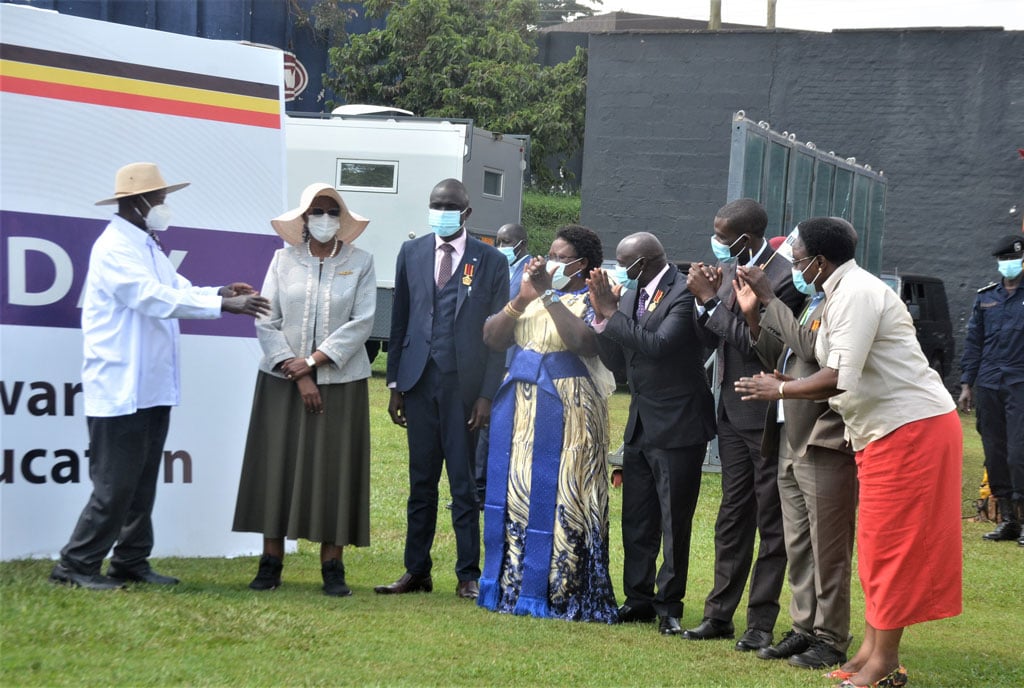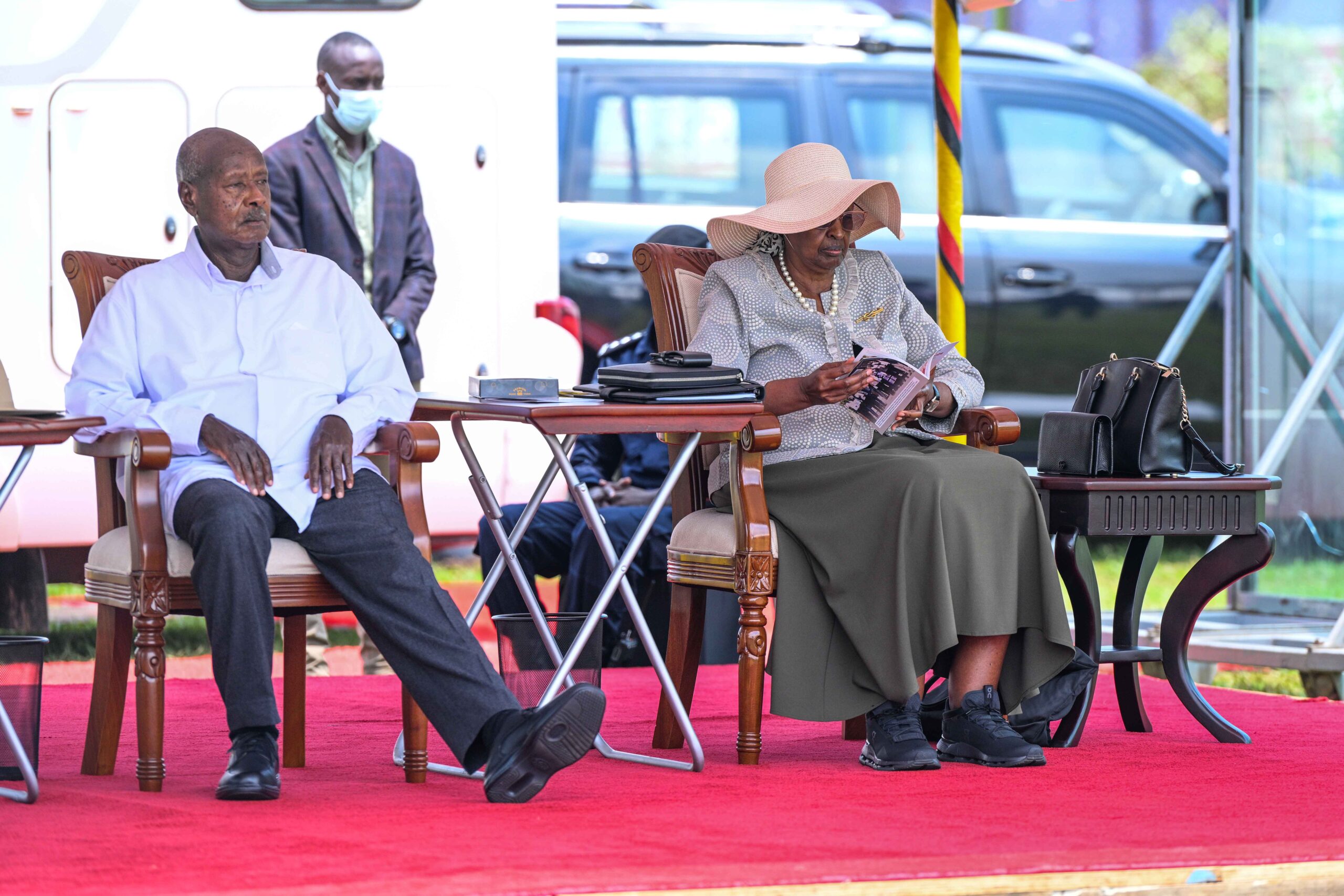In his speech on World Teachers Day 2024, H.E Yoweri Kaguta Museveni emphasised our mission as a nation: the socio-economic transformation of our people by moving away from the traditional, pre-capitalist non-money economy to a money economy with a society composed of the middle class and the skilled working class.
“The production of means to support human life, the exchange of goods produced is the basis of every social order” Fredrick Engels. Society does not change or develop by magic. It obeys certain laws which one must be aware of, man must labor in order to better himself. He must create a surplus and it is this surplus that is a base for social-economic transformation.
In his speech, H.E. Yoweri Kaguta Museveni at the Nelson Mandela Memorial lecture on 31st, August, 2017 highlighted that, “Africa, has suffered repeated calamities in the last 500 years and is now at the bottom of the World, her great potential notwithstanding. The afflictions on Africa have included slave trade, genocide, colonialism, neo-colonialism, marginalisation and self-alienation. How did this come about? How could the first be the last and for so long?”

Religion was one of the ways the colonialists kept us subservient with words like; “blessed are the poor: for they will inherit the Kingdom of God. Blessed are the poor in spirit: for theirs is the kingdom of heaven, blessed are they that mourn: for they shall be comforted, blessed are the meek: for they shall inherit the earth, blessed are they which do hunger and thirst after righteousness: for they shall be filled”. Carl Marx defined religion as the opium of the people, harmless as a sedative but dangerous if allowed to challenge the state.
Through many years of colonial influence, we began to appreciate our masters and at the same time accept our conditions of life as predestined. We were able to accept our classification as inferior people, and that we cannot emancipate by ourselves and that we need the white man to rule us. So, the perpetuation of colonialism was a possible solution to the African way of life.
We need to understand Uganda’s strategic vision. During the Bush War, the NRA/NRM leadership crafted a 10-Point Programme to provide national direction. After taking over power, the NRA further analysed the 10-Point Programme and crystallised the core points: Private Sector Led Export Oriented Strategy and Pan-Africanism.
We need to interrogate the issue of Uganda’s problem. Uganda’s problems are best understood in the context of Africa’s problems. The question of why Africa and Uganda in particular have lagged behind.
Most of us in trying to understand Uganda’s problems just float on top of events. We do not go deeper to examine the essence of the problem but simply look at the phenomena. We focus on the form instead of focusing on the content, effect instead of cause, and that way we give a false prescription to our problems. When you ask people what is Uganda’s problem, some are quick to answer that it is Museveni.

Looking at Uganda’s political history, especially the first 20 years of her independence, one easily borders on the politics of tribes and ethnicity as a basis for political legitimacy. For those who were born that time, you can’t miss to recall orchestrated state terror and repression. Extra-judicial killings. Amin instituted a cold dictatorship, abolishing political parties and banning the legislature and the judicial system. Ruled by decrees, over 300,000 Ugandans lost their lives.
I strongly believe that if we spoke one language as Uganda, we would skyrocket into a first-class country through socio-economic transformation, I think Africa can be great again. The language barrier that exists between us today is no different from the scattered communities we had across Africa in the 1400s; the question now remains: how can we quickly bridge this gap? Kiswahili, now cutting across the EAC and slowly sipping through the rest of Africa, will unite us. We need to squash the idea that we are different, that kind of mindset will continue to keep us apart. H.M. Stanley and others could see that we were the same, this was obvious to an outsider but not to us.
Uganda is a peaceful country, we are able to trade and conduct business freely. Let us appreciate that the NRM government has one of the best and organised armies that can afford to deploy parts of it in our neighboring countries, while keeping peace and order in our motherland. Something not to be taken for granted is the peace and stability we enjoy today. I personally, would not wish to go back to the unstable Uganda that was, many Ugandans need to be re-educated on our history, especially the Gen-Z that take up the biggest percentage of our population, maybe then they will get a good understanding of the role each of us has to play to protect and develop our country, H.E. Kaguta Museveni and his leadership already did their part, it is now up to us to do ours.
Today, Uganda’s strategic vision is expressed in four principles – Social-economic Transformation, Democracy, Pan-Africanism and Patriotism/Anti-sectarianism. That is the vision/ideology of the NRM that will transform Uganda into a first-class country by 2040.
A comprehensive understanding of Uganda’s history is essential for navigating its social and economic transformation. By learning from the past, Uganda can build a more equitable, inclusive, and prosperous future for all its citizens, after all, socio-economic transformation is nothing but society at a particular stage of historical development.




